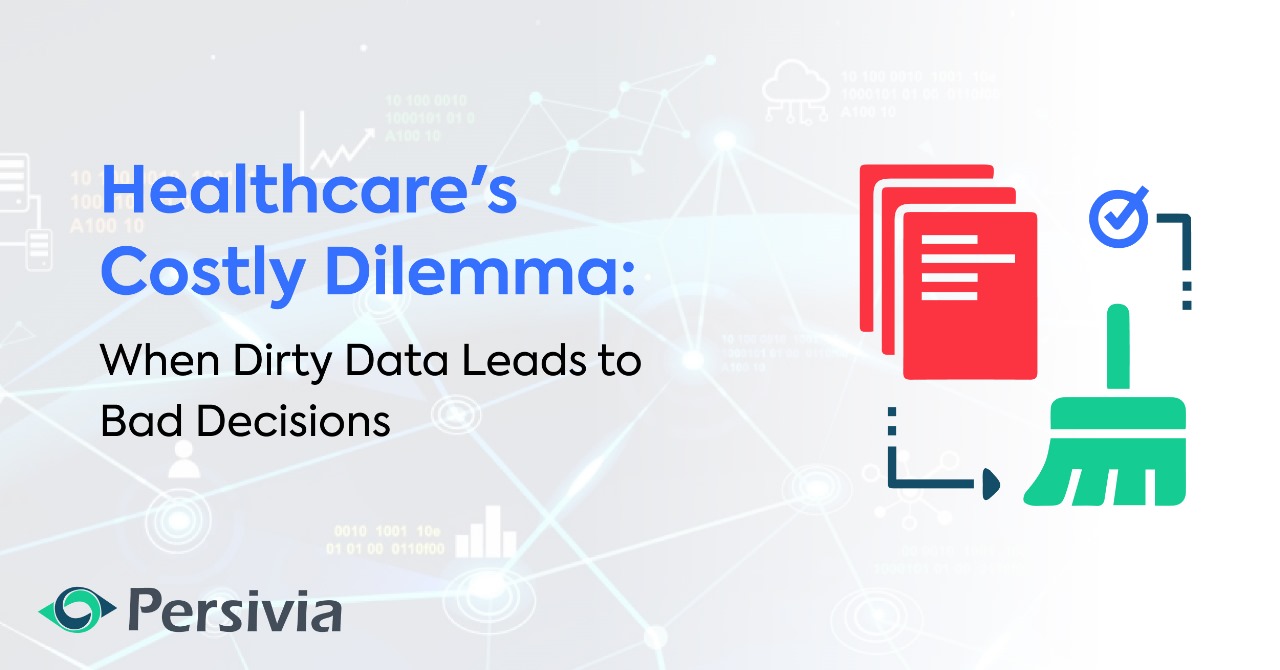In the era of big data, healthcare stands at a critical crossroads. While the potential for data-driven insights to revolutionize patient care is immense, a pervasive problem threatens to undermine these advances: dirty data in healthcare. The US healthcare industry is grappling with a data quality crisis that impacts patient outcomes and drains billions of dollars from an already strained system.
The Scale of the Problem
The numbers are staggering. According to recent estimates, dirty data costs the US healthcare industry around $300 billion annually. Based on US Attorney statistics, this figure suggests that approximately 14% of industry expenses vanish due to data mismanagement. To put this in perspective, IBM reports that data issues shrink the overall US economy by at least $3 trillion annually. The healthcare sector’s share of this loss is disproportionately high, highlighting the urgent need for solutions.
But what exactly is “dirty data”? In essence, it refers to inconsistent, duplicated, outdated, or corrupted information. In healthcare, this can manifest as multiple patient profiles, outdated treatment records, or missing critical information.
Even with health data aggregators working to consolidate information, the challenge remains daunting with over 1,300 medical databases in the US, not including the estimated 85,000 data.gov medical repositories, creating enormous potential for data quality issues.
The Real-World Impact
The consequences of dirty data in healthcare extend far beyond financial losses. Consider these scenarios:
- Patient Care Compromised
When healthcare providers cannot trust the accuracy of patient records, treatment decisions become risky guesswork. Duplicate or outdated information can lead to delayed treatments, unnecessary tests, or harmful interventions based on incorrect data.
2. Research and Development Setbacks
Value analysis, crucial for assessing the effectiveness of treatments and programs, relies heavily on clean, accurate data. Dirty data can skew results, potentially derailing promising research or leading to misallocation of resources.
3. Operational Inefficiencies
Duplicate records and data lakes (where information piles up without clear organization) confuse healthcare staff. This leads to wasted time, increased costs, and a higher likelihood of errors in patient care and administrative tasks.
4. Delayed Diagnoses and Treatments
When critical information is buried in messy data sets, it can take longer for healthcare providers to access the insights they need. In medical emergencies, these delays can have life-threatening consequences.
CareSpace®: The Solution to Healthcare’s Data Quality Crisis
CareSpace® platform provides a comprehensive solution to dirty data challenges in the healthcare industry. CareSpace® delivers rich, clean data that healthcare organizations need to drive success in today’s evolving healthcare environment, meet regulatory requirements, and address value-based care needs.
Through advanced data aggregation in healthcare, CareSpace® seamlessly integrates and normalizes data across critical healthcare sources – EMRs, HIEs, laboratory systems, claims databases, Social Determinants of Health (SDOH), HL7 feeds, patient-reported information, consumer data, and diagnostic devices. The platform transforms this disparate data into a unified, standardized longitudinal patient record that powers all business applications. Enhanced by prescriptive, descriptive, and predictive AI capabilities, this longitudinal patient record generates actionable insights, enabling healthcare providers to make precise, data-driven decisions.
Conclusion
The cost of dirty data in healthcare is far too high to ignore. It’s not just a matter of dollars lost; it’s about potentially putting lives at risk. As the healthcare industry continues to digitize and rely more heavily on data-driven decision-making, the importance of data quality will only grow.
Through comprehensive data aggregation in healthcare, CareSpace® platform offers a powerful solution to the healthcare industry’s data quality crisis. By eliminating data quality challenges through advanced integration and standardization, CareSpace® transforms fragmented healthcare data into a unified, actionable resource. The platform’s AI-enhanced capabilities convert complex data streams into precise, data-driven insights, enabling healthcare organizations to optimize patient care, streamline operations, and drive measurable outcomes. With Persivia’s innovative technologies and deep industry expertise, healthcare organizations can confidently navigate the complex landscape of medical data, turning what was once a costly dilemma into a powerful tool for enhancing overall healthcare delivery and outcomes.
Table of Contents
